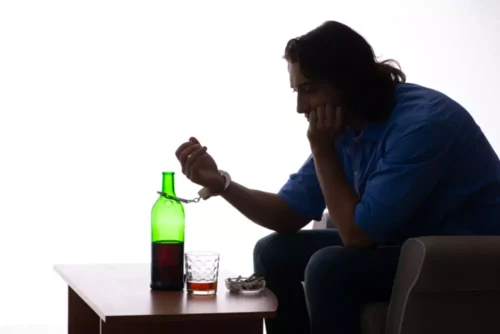Side Effects Of Alcohol Withdrawal

People who have consumed alcohol for 1 to 3 months or drunk large quantities of alcohol for 7-10 days typically experience withdrawal symptoms lasting for 6-24 hours after they stop drinking. Those with a longer history of alcohol consumption or heavier drinking may experience more severe withdrawal symptoms lasting for 2 weeks or longer. When you misuse alcohol heavily over time, you can become dependent on the substance. This means your brain and body have adjusted to the presence of alcohol and need it in order to function optimally. When you suddenly stop or reduce your drinking, unpleasant alcohol withdrawal symptoms or alcohol detox side effects emerge. Bedwetting, or nocturnal enuresis, can be an embarrassing and frustrating experience for individuals, especially when it occurs after drinking alcohol.

Thinking Clearly, Fewer Cravings
Even deciding to become sober https://ecosoberhouse.com/ and following through on it can be a powerful catalyst for repairing relationships, demonstrating how serious you are about focusing on others. Relationships are complicated, and each one will develop and heal in different ways and timeframes. Stopping alcohol, however, can make healing possible that would not be otherwise. But if it’s happening almost every time you drink—or outside of drinking? The contraction is what allows you to pee—and it’s also what lets you know you have to go.
A Caring Life Home Health
- Remember, patience and persistence are key as you navigate this process towards managing and minimizing bedwetting episodes after alcohol consumption.
- Here’s how people reported their symptoms on day one after quitting alcohol.
- In extreme cases of AWD, people may experience alcohol withdrawal seizures.
- Night sweats can be a side effect of alcohol consumption, alcohol intolerance, or alcohol withdrawal, largely because alcohol affects the central nervous system.
- Symptoms of alcohol withdrawal tend to peak 24 to 72 hours after your last drink.
- Non-physical symptoms, like cravings and desire for the comfort alcohol provides, may become more noticeable as the distraction of physical symptoms subsides.
- While there are some short-term withdrawal effects, the long-term benefits are well worth the effort.
They develop because of changes in the levels of excitatory and inhibitory neurotransmitters in the central nervous system. The brain, which has become accustomed to alcohol, is unable to cope when alcohol is suddenly withdrawn, resulting in a range of physical and psychological symptoms. During a medically-supervised alcohol detox, a multidisciplinary healthcare team keeps you as comfortable as possible by managing your withdrawal symptoms.
How long do alcohol sweats last?
- Choose an exercise regime that sits well with your current fitness level.
- Sometimes an alcohol moderation management plan, ideally supported by work with a therapist, can help the person decrease their drinking.
When AWD occurs, it is considered a medical emergency, and people are highly encouraged to call the emergency department promptly to avoid potentially life-threatening consequences. Treatments in a clinical setting may include medically monitored detox as well as IV hydration, electrolyte supplementation, and more. Diarrhea during alcohol withdrawal is caused by the effect alcohol has on the digestive system. It can make your family and friends feel as if you are choosing an addiction over them and cause you to act in ways that are destructive to relationships.
What factors affect the severity of withdrawal symptoms?
No, everyone may not experience the four stages of alcohol withdrawal syndrome. The severity of alcohol withdrawal depends on alcohol detox side effects the several factors, including the duration and extent of alcohol consumption. People who are heavy drinkers or have been drinking for years are more likely to experience all four stages of alcohol withdrawal syndrome and more severe withdrawal symptoms.

Day Eight
You may also receive other medications or treatments for related health issues, like IV fluids for dehydration and electrolyte imbalances or antinausea medicines if you experience vomiting. Alcohol (ethanol) depresses (slows down) your central nervous system (CNS). If you consistently consume significant amounts of alcohol, your CNS gets used to this effect. Your CNS must work harder to overcome the depressant effects of alcohol to keep your body functioning. To find another treatment program, browse the top-rated addiction treatment facilities in each state by visiting our homepage, or by viewing the SAMHSA Treatment Services Locator.


